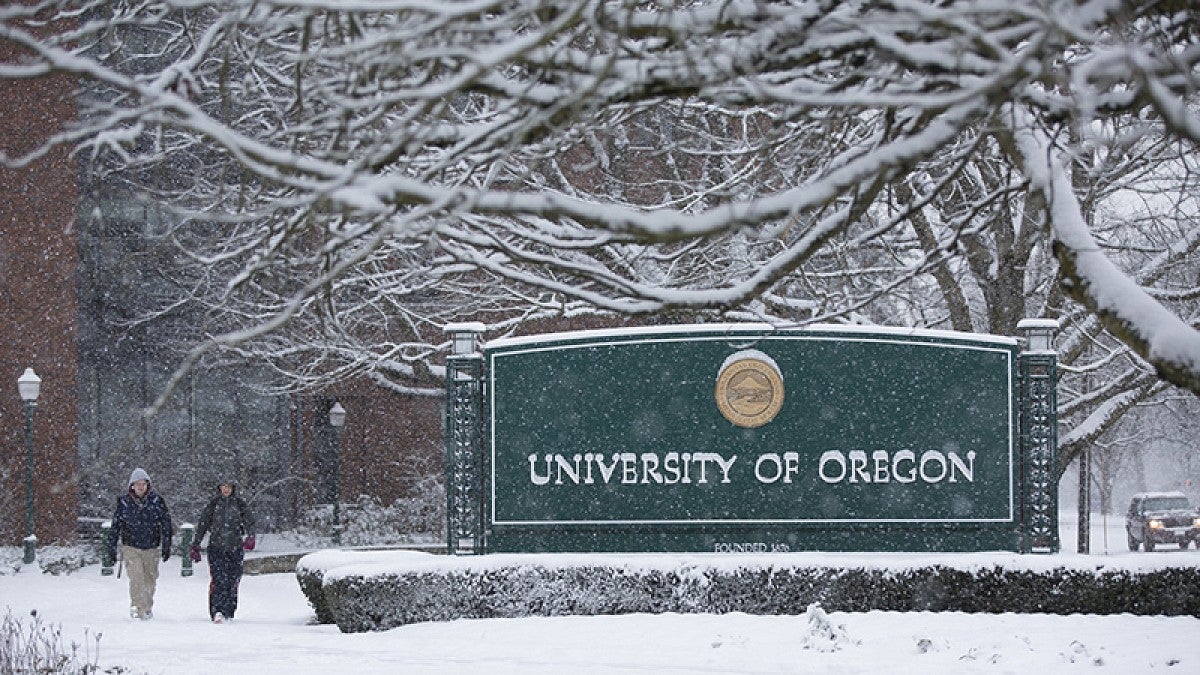University of Oregon employees and students should be ready for hazardous winter weather. Understanding how the university makes closure and delay decisions, how information is shared, and how the weather affects classes, research and operations helps UO community members prepare.
As a research and residential campus, the UO rarely closes, and many functions will go on regardless of the weather. However, UO policy does allow for delayed opening, early closure or full closure when UO administration determines that conditions are too severe for normal operations. Weather-related schedule changes for the Eugene campus are made by senior leadership staff and Incident Management Team members, in consultation with local public safety, utility and weather experts and using the best available information.
Cancellation, delayed start and early closure decisions are usually made each morning and communicated as soon as possible via official channels. Decisions for UO campuses outside of Eugene are based on local conditions, by designated sources:
- UO Portland decisions are made at the discretion of UO Portland senior leadership.
- Oregon Institute of Marine Biology in Charleston decisions are made at the discretion of OIMB senior leadership.
When the UO is open, members of the campus community are expected to use their best judgment in assessing the risk of coming to campus, based on individual circumstances and in consultation with instructors or supervisors. Instructors and supervisors should be flexible in working with people who choose not to come for their own safety.
Employees who perform essential functions will be expected to come to work. Supervisors of these employees are responsible for communicating attendance expectations in advance and discussing anticipated transportation difficulties. Employees who aren’t sure if their functions are designated as essential should ask their supervisors.
Faculty and staff working remotely may sometimes be impacted by winter weather in their remote locations. Supervisors and employees should discuss contingency plans and communication expectations in advance of an anticipated weather event. Refer to the HR website for further guidance.
The UO suggests several tools employees and students can use to be aware, prepared and resilient in hazardous weather:
- UO Alerts: Official communication of any changes to the university’s schedule comes through UO Alerts texts and emails, which go to all uoregon.edu accounts. Individual settings for UO Alerts are managed at duckweb.uoregon.edu.
- UO Alerts blog: Includes all UO Alerts messages and also shares extra information on known hazards and resources for safety and information.
- Human Resources’ inclement weather information.
- UO policy on closure of facilities and operations.
- Winter tips: The right clothing, footwear and even tactics for walking can be the difference between safety and serious injuries.
- Winter driving tips and resources from the Oregon Department of Transportation and National Weather Service.


